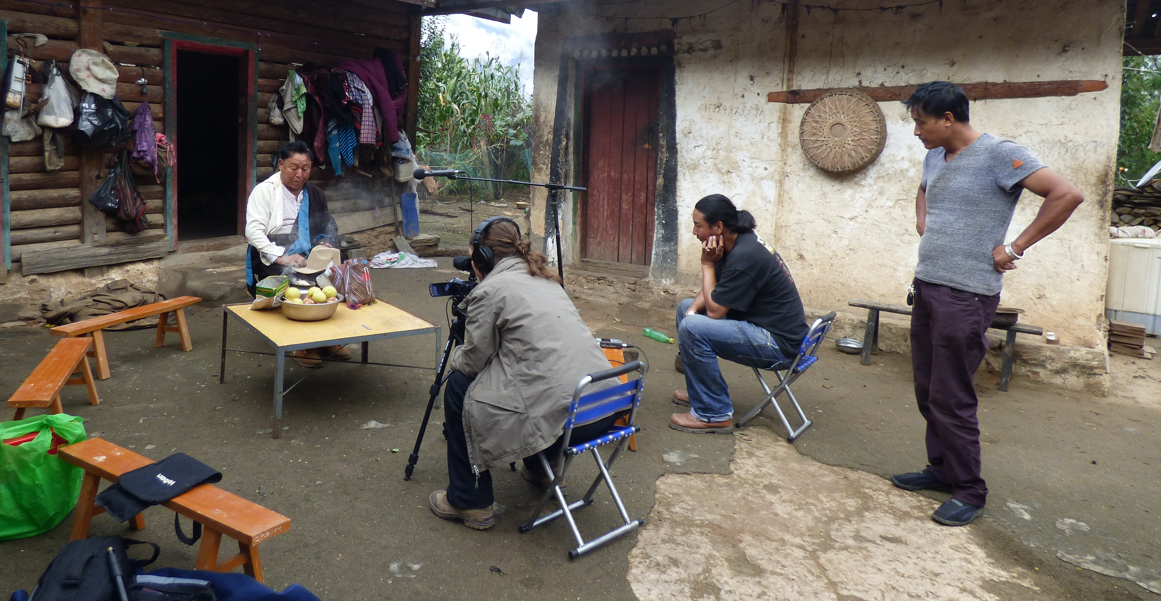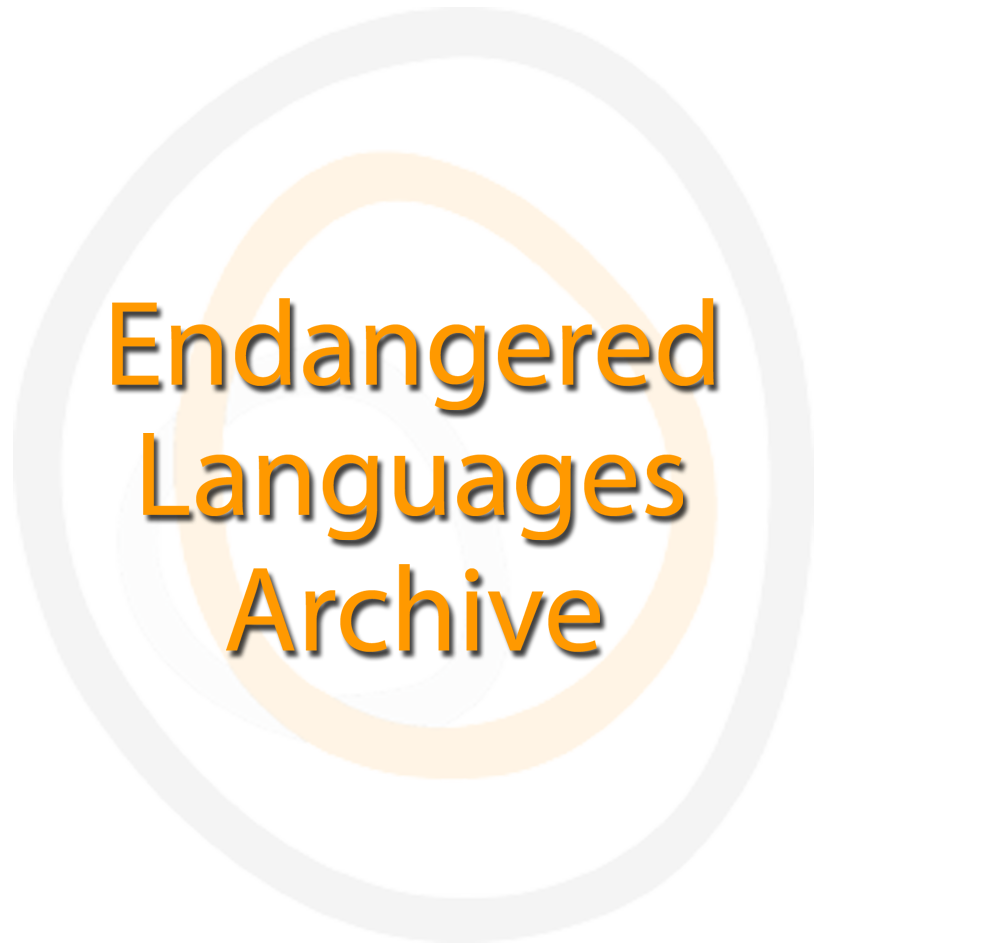Farming, food and yam: language and cultural practices among Ikaan speakers

| Language | Ukaan (ISO639-3:kcf), Ikaan | |
| Depositor | Sophie Salffner | |
| Affiliation | School of Oriental and African Studies | |
| Location | Nigeria | |
| Collection ID | 0259 | |
| Grant ID | IPF0178 | |
| Funding Body | ELDP | |
| Collection Status | Collection online | |
| Project Start Date | ||
| Project End Date | ||
| Podcast |
|
|
| Showreel | ||
| Summary of the collection | ||
| Ikaan, a dialect of Ukaan, is spoken in two villages in south-western Nigeria. This collection investigates phonetic and phonological variation among speakers based on a documentation of language around, knowledge of and practices in food, food production and farming, with a special focus on the New Yam Festival.
The data was collected by Sophie Salffner, linguist and principal investigator, Maria Tzika, visual anthropologist, and the community members themselves. The collection includes an annotated audiovisual documentation corpus with data from a wide range of speakers, but also an anthropological visual map and a series of short documentary films around the festival. The picture at the top shows Janet Olusi, the most senior woman in Ayede quarter of Ikakumo (Ondo) as she is blessing the new yam that the small boys brought to her in the morning of the new yam celebrations. An peer-reviewed open access overview article of the deposit can be downloaded from the journal Language Documentation & Conservation either from the webpage of the journal issue or via the direct link to the article. |
||
| Group represented | ||
| This deposit includes contributions from a range of ethnic and linguistic groups living in Ikakumo (Ondo State) and in a few of the neighbouring villages. The people and languages represented (among others) are the Akaan people of Ikakumo (Ondo State) and Ikakumo (Edo State), as well as Ebira, Yoruba and Abesabesi. | ||
| Language information | ||
| This collection is mainly made up of material of the Ikaan lect spoken in Ikakumo (Ondo State) and Ikakumo (Edo State). The Ikaan lect is part of a larger cluster of lects that is referred to in the linguistic literature as “Ukaan” or “AIKA”. Other languages included in the material are Yoruba, Ebira, English and Abesabesi (Akpes). | ||
| Special characteristics | ||
| The collection contains photography as well as audio and video recordings of village life that were shot by the school children in the community. Children filmed their family members making baskets or frying gaari, interviewed them about their past and filmed each other on their farms or while helping in the house. Photography and video shot by the children in 2013 as part of the Ikakumo Photography School held by Asya Gefter with help from Adesoji Olusi and Sophie Salffner was put together in an exhibition shown in London, Ikakumo and Ibadan.
The collection further contains films of a traditional funeral for a very old lady and interviews with the family of the old lady and with the people who participated in the funeral. Funerals such as this one are held only rarely these days because very few worshipers of the traditional faith remain. We are most grateful to the Obagaye family, who have given us permission to film the funeral and to deposit the data with the archive. Finally, the collection includes a video album where people who contributed to the documentation introduce themselves and talk about how they helped with the documentation. Some people also added prayers, good wishes and small speeches to the video album. The video album is still in progress and we are inviting contributors to have their own video taken. |
||
| Collection contents | ||
| Collection history | ||
| The data for this collection was collected during the postdoctoral research of Sophie Salffner, the principal investigator. The first set of data was collected in May, June and July 2012, when Sophie Salffner and Maria Tzika went for fieldwork to Ikakumo. After Sophie and Maria left, the children and other community members collected more data, and Fred Adekanye continued with the transcription and translation of the data.
In 2013, Sophie returned to Ikakumo to show the films shot in 2012, work more with the community and to collect more data. She was accompanied by Asya Gefter, a photographer, artist and researcher, who worked with the children in Ikakumo to take photos of everyday life, school and play. |
||
| Acknowledgement and citation | ||
| Users of any part of the collection should acknowledge Sophie Salffner as the principal investigator and Sophie Salffner and Maria Tzika as the data collectors and researchers. Users should also acknowledge the Endangered Languages Documentation Programme as the funder of the project. Individual speakers whose words and/or images are used should be acknowledged by name. Any other contributor who has collected, transcribed or translated the data or was involved in any other way should be acknowledged by name. All information on contributors is available in the metadata.
To refer to any data from the corpus, please cite the corpus in this way: Salffner, Sophie. 2014. Farming, food and yam: language and cultural practices among Ikaan speakers: an archive of language and cultural material from the Akaan people of Ikakumo (Ondo State and Edo State, Nigeria). London: SOAS, Endangered Languages Archive. URL: http://hdl.handle.net/2196/36e3cad7-83cd-4260-ade9-1ccc64a918c0. Accessed on [insert date here]. |
||


